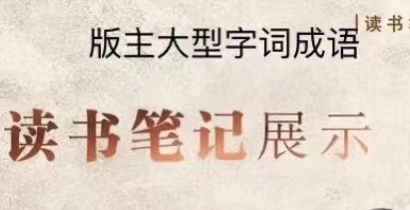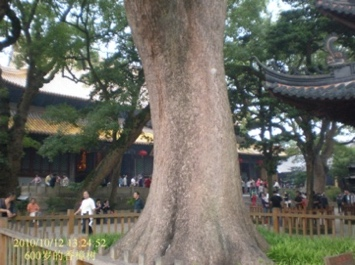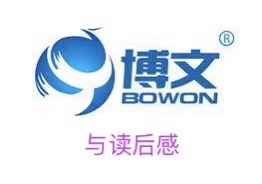I was not satisfied with myself even if I had published so many articles. Whenever I was wandering in a bookstore, I was always wondering when a book written by me could be displayed in here. The gap between writing articles and a book seemed too wide for me to close and I thought of a way to narrow the distance: first doing translation, namely translating a book on grammar or English usage written by native writer into Chinese, because I could read such books very quickly and understand them immediately. So I tried translating one or two sections of a book. There was also a wide gap between understanding what you read and translating it into your mother tongue. I had thought that I could bring it back as soon as I stretched my hand. I was completely wrong. I worked for days and discovered that what I had understood was still very difficult for me to translate. In addition, which publishing house was willing to publish my work? Recalling what I did about a so called Chinese and English dictionary, I was afraid of continuing to do it.
During the spring festival of the year 1988, some graduates from ZMS, who now studied in colleges and universities, came to see their teachers. One of them, called Qinjie Zeng, came to my house and I talked to him about my translation and wish to find a publishing house. Zeng used to be one of my students, who I coached in a small class every afternoon during week days. In 1984, he entered the English Department of Suzhou University and now he would graduate soon. He said that he got to know an editor during his practice in a publishing house of Shanghai as an intern. He was enthusiastic and willing to help me. I gave him 50 yuan as public relation fee. (At that time my month salary was about 60 yuan). Since then, no news had come from him. I was also full aware of my wrong belief in a green man who had no social experience. I didn’t ask him in any means although I saw him several times later.
What is suffering? A wise man said suffering is that you are doing what you are no able to do. Buddhists believe that all our sufferings come from our pursuing fame and wealth, whose temptation is so strong that you may follow them forever without end. “Whatever you wish will come true” is only a wish. Exhaust all one’s physical and mental efforts to do something, but achieve nothing and you’ll fall into a grievous abyss. Be fame & wealth-regardless, you will be quiet in your mind. Buddhism sees fame and wealth as fierce floods and savage beasts, which I don’t think necessary. Pursuit of fame and wealth is “dynamic” and giving up is “static”. The whole life should balance between the “dynamic status” and the “static one”. It’s unnecessary to avoid fame and wealth as taboo. However, sometimes giving up is unavoidable, which is called “being skilled at tension and relaxation”. Pursuing is tension and giving up relaxation. You can’t pursue them by resorting to all sorts of means, neither can you seek ease and comfort. The former cannot ensure your success and may lead to you being looked down upon, and even committing crimes, resulting in endless troubles and worries. It is not strange that Buddhism shout “bitterness without end and in repentance there is salvation.” For myself, what I had done was not controlled by fame and wealth. What I had been wishing was to manage to do something in my life. Early in Mapo when I began to work, I read an article introducing Abraham Maslow’s theory of a hierarchy of needs in the magazine “Chinese Young People”, which influenced my whole life and let me have a thorough understanding of various minds and needs belonging to people in different locations of the social hierarchy. I didn’t find the Maslow’s theory in English until I began to compile the text book of Financial English in 1999. The main viewpoint of Maslow’s theory is that people who are satisfied with physiological, security and social needs want higher level of needs, namely, ego and self-actualization. Ego refers to respect and achievement and self-actualization working toward one’s own goals and standards. Accordingly, what a human being pursues in his or her life cannot be summarized only by two words of “fame and wealth”, which you don’t need to gain intentionally and more or less of which is unimportant. “Fame and wealth” is not always equal to the real value of one’s life.
When being frustrated, I found aphorism by Confucius was also a fine prescription to balance my mind, in addition to Buddhism and Maslow’s theory. The Master said, “Since the age of 15, I had devoted myself to learning; at 30, I was well established; at 40, I understood many things and was no longer confused; at 50, I got to know the decrees of Heaven; at sixty, I could treat calmly whatever I heard. and at 70, I could do whatever I wanted without breaking the rules.” Although there were years to 50, I did understand what the decrees of Heaven meant. Any king or emperor cannot realize all his wills, let alone me, an ordinary man. The old Chinese proverb says, “Man proposes, God disposes”. If the subjective and objective conditions are not adequate or ripe, you must give in and wait. I decided to give up and kill the idea of writing a book again, gradually getting rid of the pain. As to whether I could become an author of a book in my whole life, I do not know and had to hide the wish deep in my heart.
Jan. 28 2010 in Xuzhou
Proofreading on Feb. 19, 2012 in Chicago
Uploading on Aug. 5, 2023 in Xuzhou









